
If you’re a parent of a toddler, ensuring that they are eating enough, gaining weight correctly, and overcoming fussy eating tendencies may be at the top of your mental to-do list. No parent wants their kid to fall behind on the growth chart. If your toddler is a fussy eater or refuses to eat certain items like egg, milk etc. then ensuring that they eat enough protein in a day is a tough task. In such a scenario protein powder for toddlers can be a good alternative.
Protein is responsible for so many things in the body like, building muscles, strengthening bones, maintaining health of skin, hair and nails, supporting body’s immune system etc. In case your toddler is not consuming adequate protein and you are worried about it, you can opt for protein powder. This article will shed light on all you need to know about choosing the best protein powder for toddlers, including why do doctors prescribe supplements, how much protein powder your kid needs, and more.
In This Article
- Importance of Proteins
- How Much Protein Does Your Toddler Need?
- What is a Protein Powder?
- Why is Protein Powder Required?
- Is it Safe to Give Protein Powder to Toddlers?
- 3 Different Types of Protein Powder For Toddlers
- Things to Consider Before Choosing The Right Protein Powder
- What to Do if Your Toddler Does Not Like Shakes or Smoothies?
- FAQ’s
Importance of Proteins
Protein is the building block for bones, cartilage, muscle, and skin, and it heals and develops tissue in your toddler’s body. It also controls hormones, functions as part of a digestive enzyme, and aids in the transport of oxygen throughout the body. It’s a macronutrient, like carbs and fat, and it’s something your toddler needs to survive. Protein is, without a doubt, essential for both toddlers and adults.
If a kid is not getting adequate amount of protein in their diet, then they may face issues like slow growth, decrease in body’s immunity, fatigue, etc (1). Hence, it is imperative to make sure that your toddler is getting adequate protein in their diet.
How Much Protein Does Your Toddler Need?

For every kilogram of body weight, a toddler requires 0.5 gram of protein (2). For instance, if your toddler weighs 12 kgs they would require around 6 grams of protein in a day. One thing to remember is that the protein requirement for kids vary. Some kids may need more and some may need less, depending upon a host of factors.
Also note that one should not feed extra protein to the toddler. Including extra protein in your toddler’s diet, without first consulting with the doctor may lead to problems later in life (3). So better consult with the doctor before deciding to increase your toddler’s protein intake or opting for supplements like protein powder.
Do keep in mind that a protein supplement may contain up to 80 grams of protein each serving, which is far too much for a toddler to consume. Therefore, select a healthy smoothie that is appropriate for your child’s size.
What is a Protein Powder?
Protein powder for toddlers, as the name implies, is mostly composed of proteins, which are a necessary component of the human body. Whey, soy, and casein protein powders are the most common forms of protein powder for toddlers. While toddlers may ingest all three, physicians often prefer whey protein. This is a water-soluble milk protein that contains necessary amino acids (4) that are important for a kid’s growth and assist your toddler in getting the proper quantity of protein.
Why is Protein Powder Required?

First of all, let us clarify that protein from food sources is the best option. So, go for supplements only if your doctor recommends it. The doctor will only suggest protein powder for toddlers if the little one is unable to get it from whole foods. Doctor may suggest protein powder for toddlers if-
- If the toddler is underweight
- S/he is a fussy eater
- It’s a vegetarian family
- If the toddler is suffering from a metabolic condition
It is highly suggested not to opt for a protein powder without a doctor’s prescription as more than required protein levels can lead to side effects like digestive issues, dehydration, kidney damage (5), and loss of calcium from the body (6).
[Read : Is My Toddler Underweight?]
Is it Safe to Give Protein Powder to Toddlers?
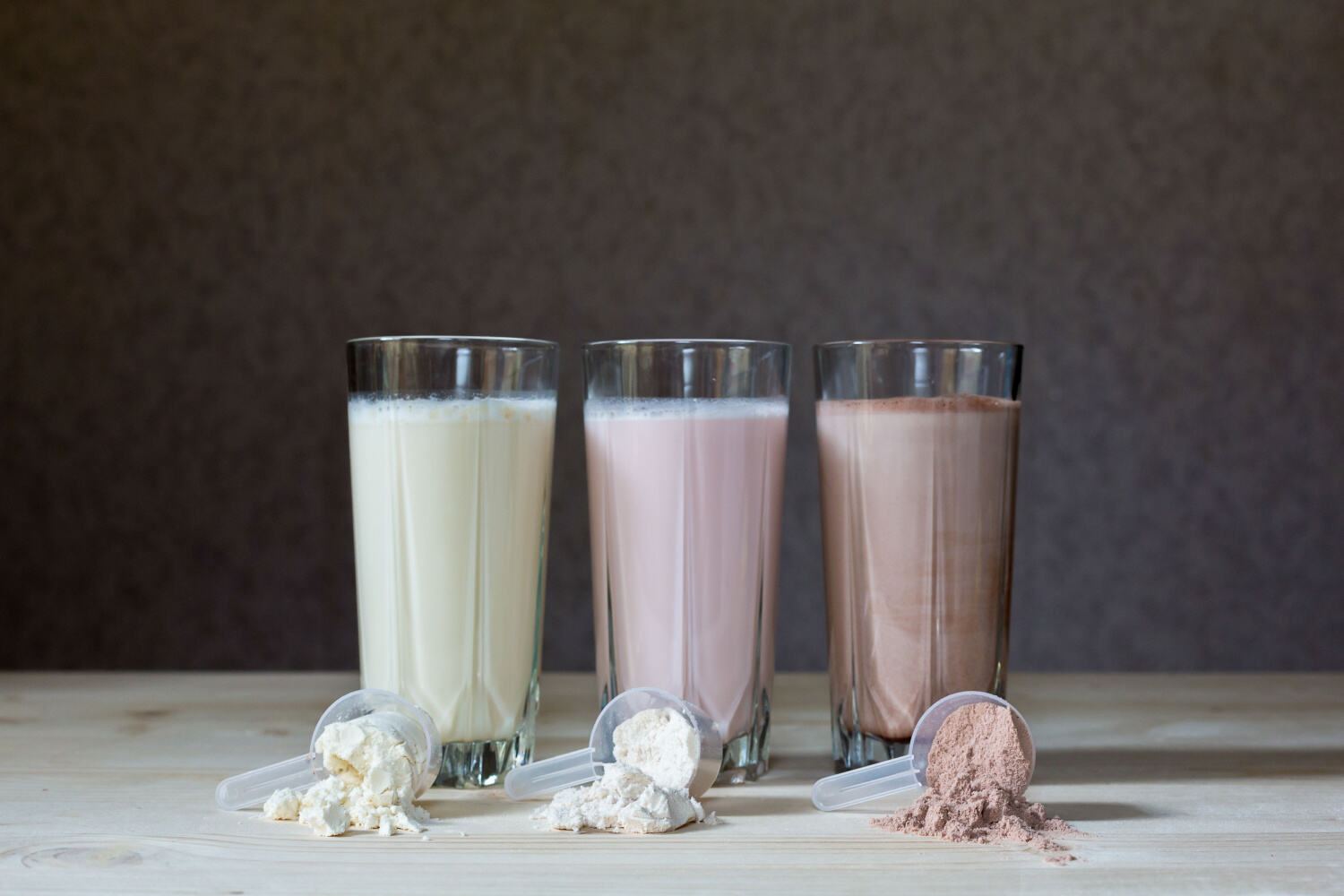
Whether it is safe to give protein powder to toddlers depends on various factors. If a toddler is eating balanced meals and is having a variety of food items in their diet, it is more than enough. Then they don’t need any additional supplements for protein in their diet. Supplementing protein in your toddler’s meals is not necessary as protein deficiency is very uncommon in kids. Since they are eating several food items their daily protein requirements are covered through that only.
Unless your toddler has some medical issue which makes it necessary for them to take in extra protein, there is no need for protein powder. In such a scenario, their doctor will only prescribe the supplement and its dosage. Please do not give protein powder on your own as it will do more harm than good.
3 Different Types of Protein Powder For Toddlers
There are different types of protein powders available in the market these days. Before starting with protein powder for toddlers, it is best to check with the doctor on which type of protein powder to go for. The different types of protein powders available are-
1. Whey Protein Powder
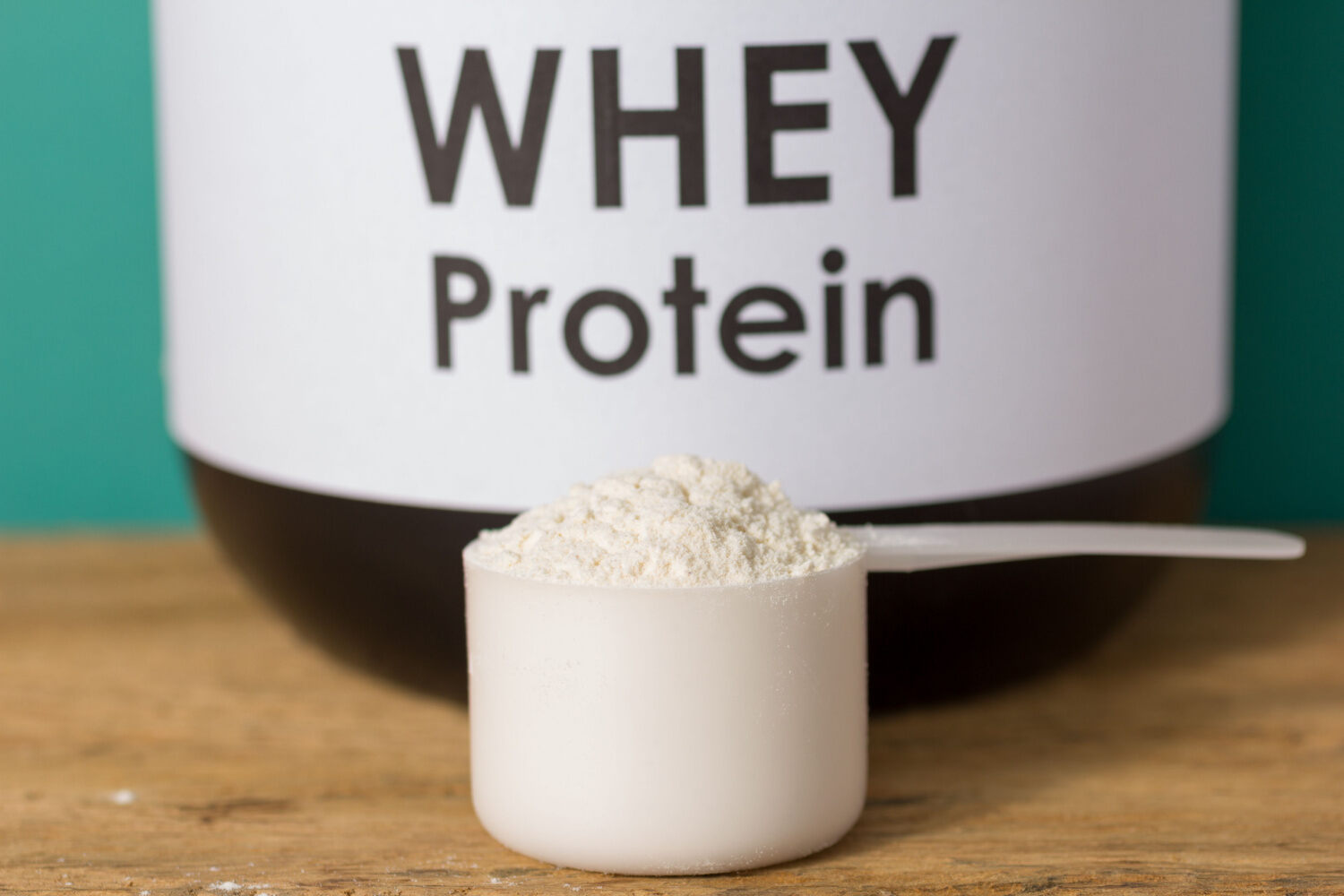
This form of protein for toddlers is also known as the “complete” protein since it contains all of the essential amino acids that are necessary for a toddler’s bodily growth. Because whey protein powder for kids is made from cow’s milk, it’s great for kids (7). As soon as the protein reaches the toddler’s circulation, the creation of leucine, an amino acid, begins. But, high dosage of whey protein can cause side effects such as- bloating, digestive discomfort, headache, fatigue etc (8).
2. Casein Protein Powder
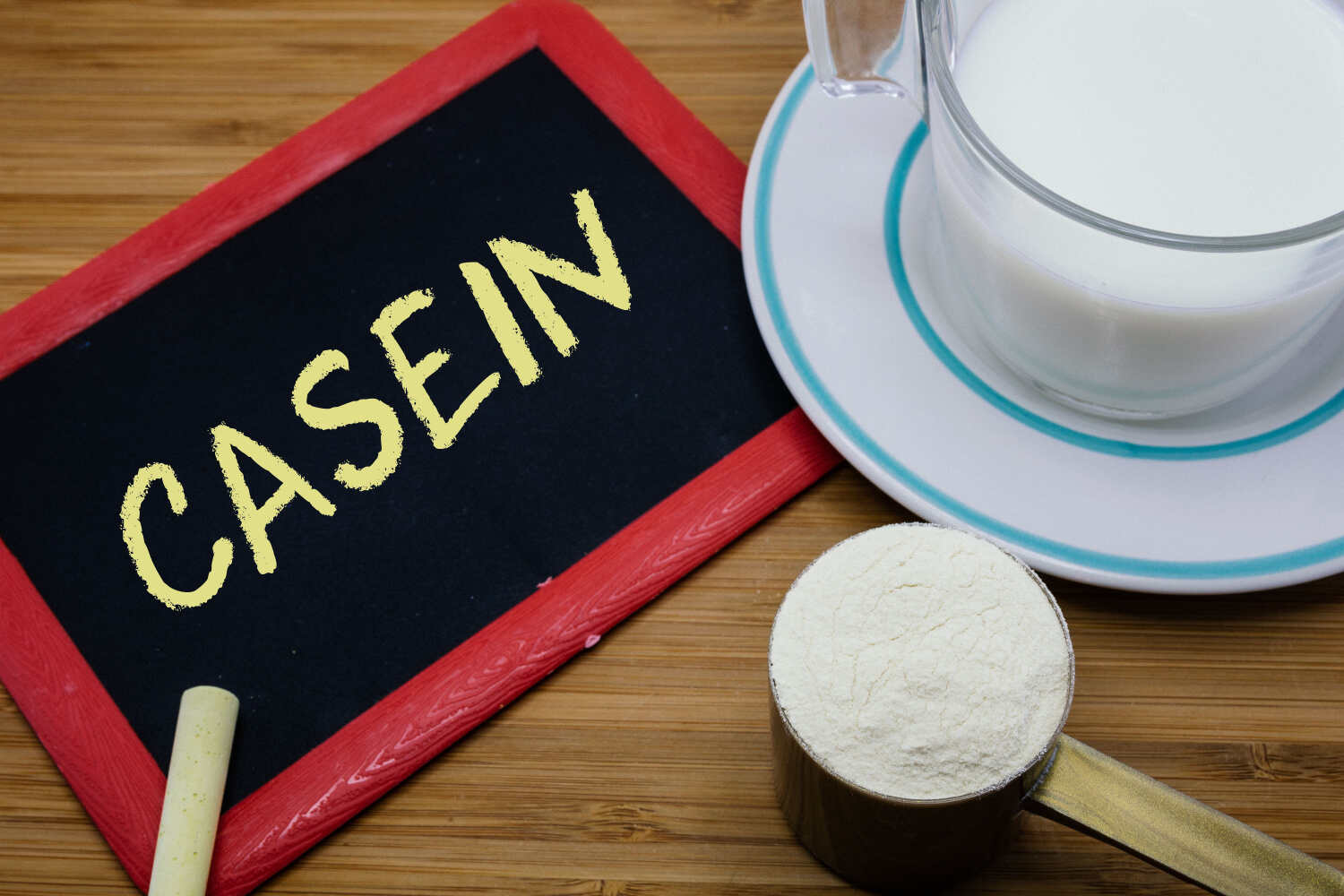
Casein protein powder (7) for toddlers is also made from milk. Although it lacks all of the amino acids listed above, it is also more difficult to digest, particularly for young kids. As a result, your toddler may feel fuller for longer than normal after consuming casein powder.
3. Soy Protein Powder
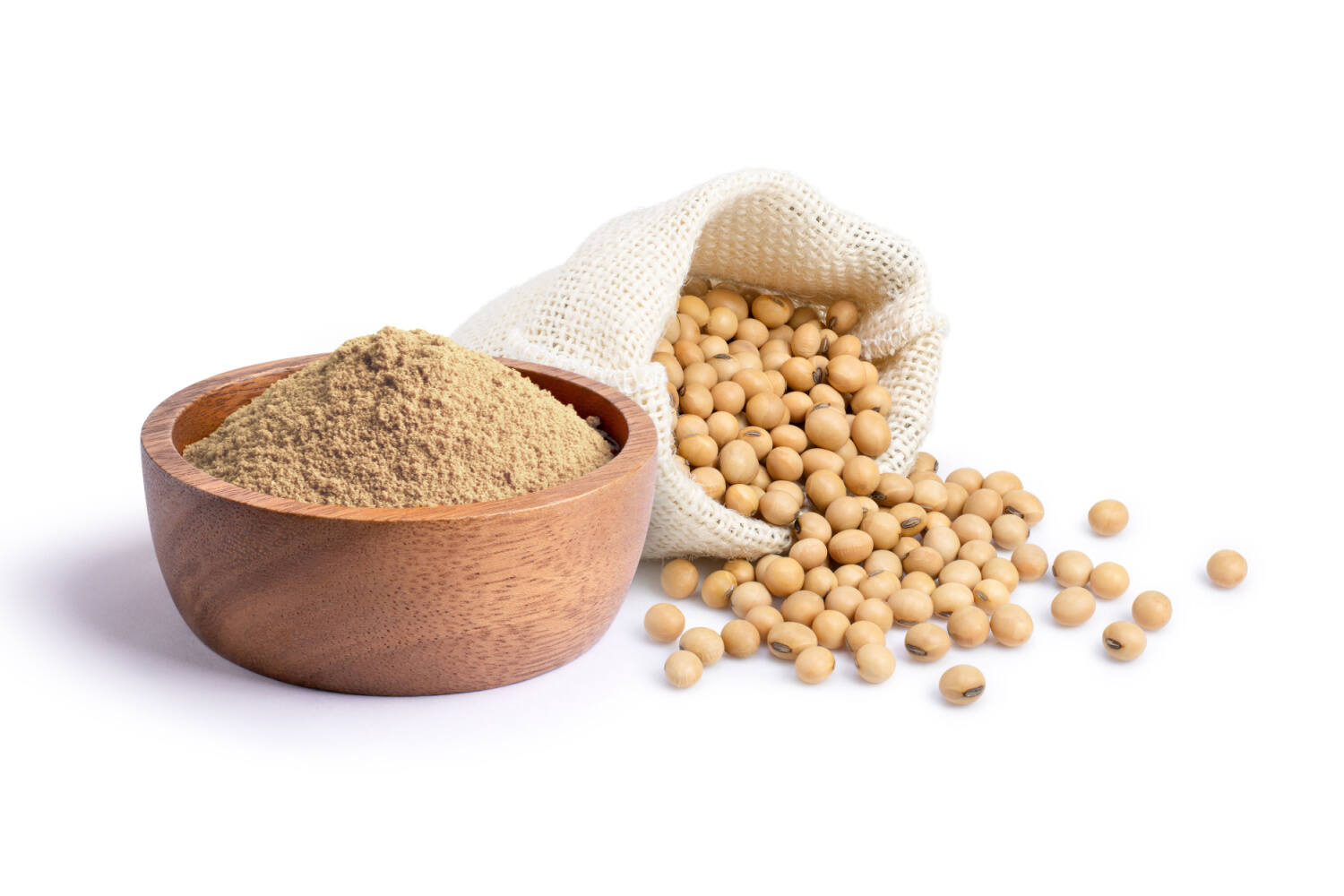
Soy protein powder (7) for toddlers has several advantages. But, when it comes to supporting muscle protein synthesis, soy protein is not that effective as animal protein (9). Soy is the most widely used plant protein which can be safely consumed by those who are lactose intolerant or allergic to animal protein. While kids should consume soy products like soybean, tofu, etc. over consumption is not recommended. Consuming excess soy can lead to issues like gastrointestinal problems and in few kids, it can also lead to increased risk of Kawasaki disease.
[Read : Kawasaki Disease in Children]
Things to Consider Before Choosing Protein Powder For Toddlers
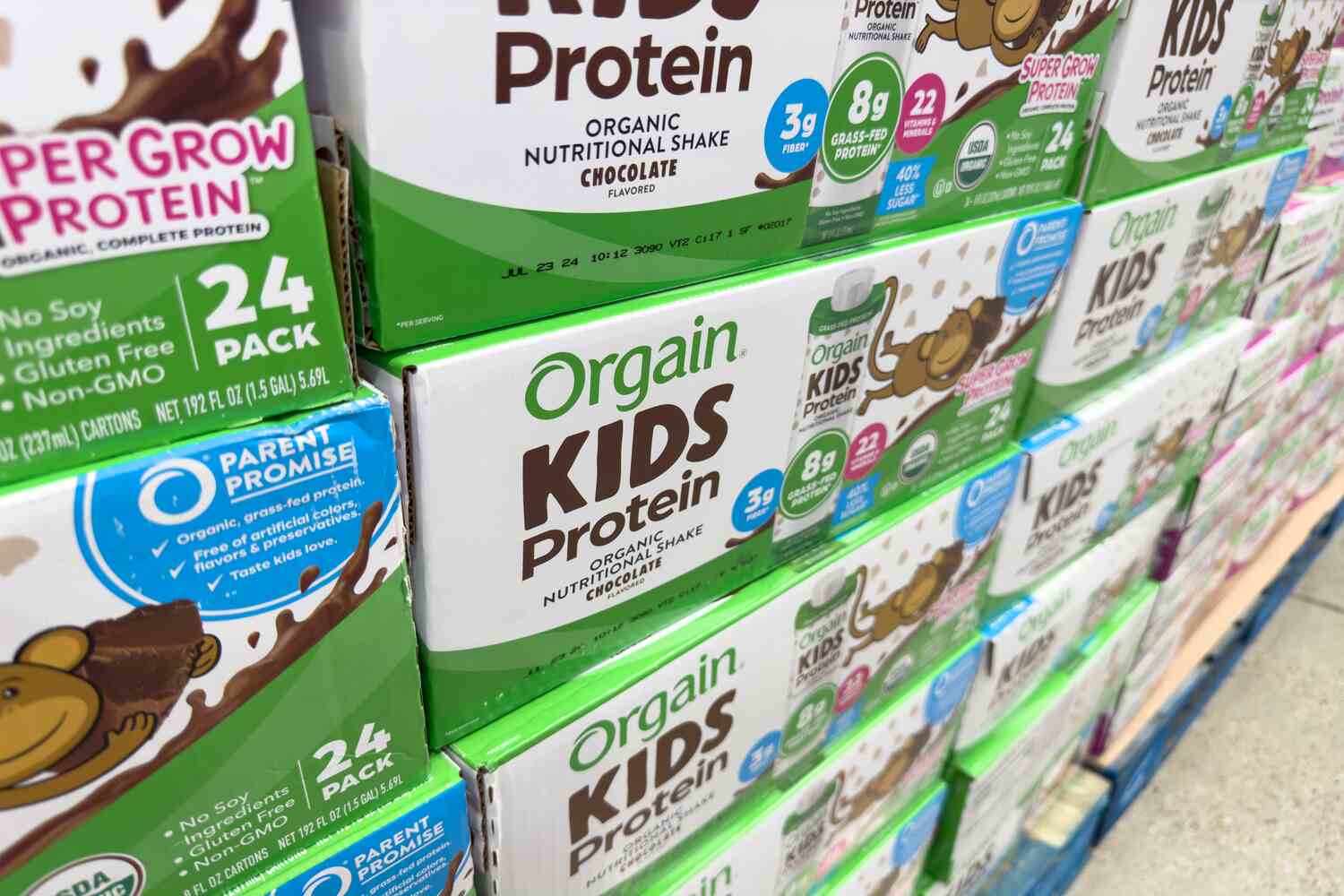
Before deciding upon the best protein powder for your toddler, there are several factors which should be considered, like-
- Always buy protein powder made specifically for kids. Do not purchase the ones which are made for adults or athletes
- Make a list of components. Look for the best protein for toddlers that are primarily made up of protein only. Peas or pea protein isolate, for example, might be listed as an ingredient in a pea protein powder.
- Look for organic and non-GMO (genetically modified organisms) choices. There will be no toxic substances in them that may prove harmful to your toddler’s health
- Avoid powders that include sugar or artificial sweeteners. Artificial stuff is bad for young kids, so look for a natural alternative
- Look for toddler protein powders featuring the term “GMP” on the label. GMP stands for Good Manufacturing Practices, and it signifies that the protein powder was made in a facility that follows industry best practices and discloses all of the contents in the protein powder
- Check the serving size and the amount of protein for toddlers in each serving. Know how much protein your child needs and make sure you don’t go over it
What to Do if Your Toddler Does Not Like Shakes or Smoothies?

While making a protein shake or smoothie is a popular use for protein powder, most protein powders are versatile enough to be used in a variety of other ways. Here are some suggestions-
- Toss a spoonful of protein powder into your toddler’s yogurt or pudding
- Make waffles or pancakes with it
- Protein balls are easy to make so you learn the recipe
- Incorporate into your child’s oatmeal
If you want to incorporate protein powder for toddlers in the diet, then you must first determine which powder is ideal for them, as well as the amount of protein required. It’s crucial to choose a protein powder with as few components as possible, without added sugars or artificial additives. And as always before including protein powder in your kid’s diet, check with the doctor whether it is required or not, and correct dosage as well. Remember, best thing is to provide nutrition to your kid through a balanced diet. But, if your toddler is a fussy eater or rejects certain foods, there is no harm in opting for alternatives.
[Read : Amazing Tips To Tackle Eating Disorders In Toddlers]
FAQ’s
1. How Can I Increase My Toddler’s Protein Intake Without Protein Powder?
Giving protein powder to make up for less protein intake in your toddler’s diet is often not necessary. Try and give variety of foods which are rich in protein like, seafood, milk, soybean, tofu, eggs, lentils, etc. to your kid. Including a variety of food will ensure that your toddler will not get bored and will end up eating at least something from the choice of food items they get. A toddler doesn’t need too much protein in their diet (2) and their daily requirement is often made up through the foods they eat.
2. Can Protein Powder Cause Allergies in My Toddler?
Like any other food item, protein powder too can cause allergy in a toddler. Protein powder is made up of different ingredients. If the kid is allergic to any of those ingredients, they might get an allergic reaction after consuming it. To avoid this, it is better to always check the label for the ingredients. Also, if it is prescribed by the doctor, consult with them on how to give it to your toddler without causing an allergic reaction. More often than not they will prescribe an alternative.
3. At What Age Can a Kid Drink Protein Shake?
Kids usually get enough protein from their diet. If they are eating a well balanced meal, it will cover up for their protein requirements. However, if a kid is into athletics and sports which require hard physical activity, they may need some extra dose of protein. In such a case the doctor or a nutritionist will prescribe the supplement and the dosage required by them after doing an examination.
4. What Are The Symptoms of Protein Deficiency?
Protein deficiency means that the kid is not getting enough protein through their diet. Protein deficiency is very uncommon. But it may show up in some cases like, if a kid has some medical condition, they follow a vegan or vegetarian diet etc. In most of the cases this deficiency can be met through a balanced diet. However, in medical conditions, their doctor may prescribe supplements. Protein deficiency may show up in a kid as slow growth, anemia, water retention or edema, weak muscles etc.
References
- Protein – [https://www.hsph.harvard.edu/nutritionsource/what-should-you-eat/protein/]
- How much protein does my child need? – [https://health.choc.org/how-much-protein-does-my-child-need/]
- Protein intake in children and growth and risk of overweight or obesity: A systematic review and meta-analysis – [https://www.ncbi.nlm.nih.gov/pmc/articles/PMC8861858/]
- Protein—Not Just a Food Group! – [https://kids.frontiersin.org/articles/10.3389/frym.2021.581068]
- Kidney-friendly eating plan – [https://www.kidneyfund.org/living-kidney-disease/healthy-eating-activity/kidney-friendly-eating-plan]
- Excess dietary protein can adversely affect bone – [https://pubmed.ncbi.nlm.nih.gov/9614169/]
- Protein – Which is Best? – [https://www.ncbi.nlm.nih.gov/pmc/articles/PMC3905294/]
- Whey Protein Nutritional Power House of Future – [https://www.ijabbr.com/article_9282_fec5981a3d90bb184c57b5d5a0920e76.pdf]
- The Role of Milk- and Soy-Based Protein in Support of Muscle Protein Synthesis and Muscle Protein Accretion in Young and Elderly Persons – [https://www.researchgate.net/publication/43023339_The_Role_of_Milk-_and_Soy-Based_Protein_in_Support_of_Muscle_Protein_Synthesis_and_Muscle_Protein_Accretion_in_Young_and_Elderly_Persons]
- Allergic Reactions Associated with Ingestion of Protein Supplements – [https://www.jacionline.org/article/S0091-6749(18)32204-8/fulltext]
- Protein – [https://www.betterhealth.vic.gov.au/health/healthyliving/protein]
Read Also: Milk Alternatives For Your Toddler – When to Consider and Top Substitutes
